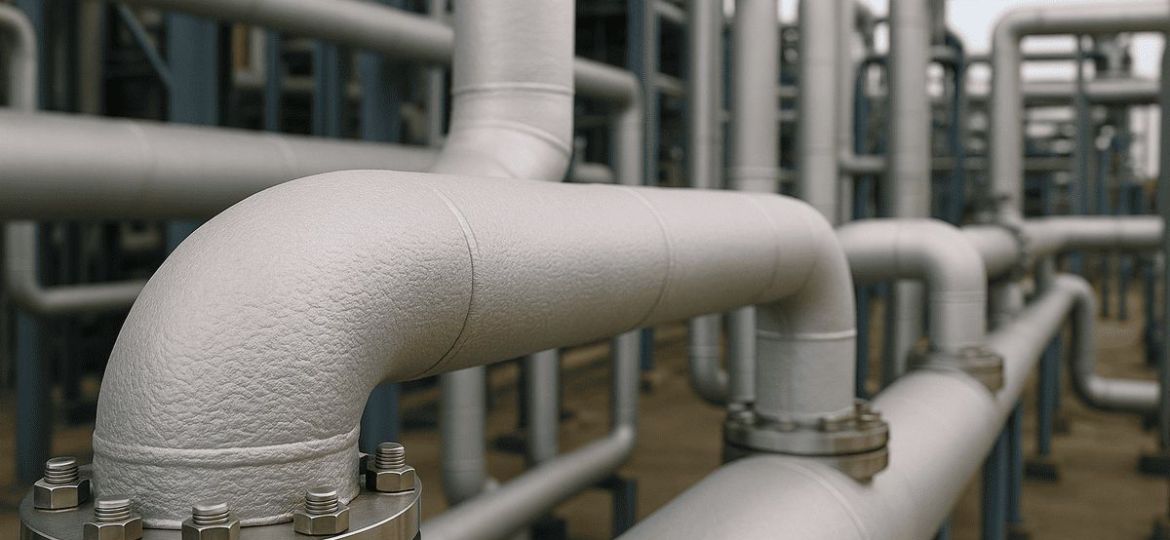
Industrial insulation is one of the fundamental measures in any plant where thermal processes are involved. Beyond preventing heat loss, a well-designed insulation system provides other benefits such as improving energy efficiency, protecting worker safety, and extending the service life of equipment.
Why is insulation necessary in industrial facilities?
In environments where operating temperatures are high, unprotected surfaces can pose a risk and an unnecessary cost. In this case, industrial insulation fulfills several key functions:
- Maintain process temperature: constant cold or heat in equipment and pipelines.
- Increase energy efficiency: reduced fuel or electricity consumption.
- Protect personnel: safer surfaces against high temperatures.
- Preserve the service life of equipment: stable conditions that reduce stress and deterioration.
Where is thermal insulation applied in industrial facilities?
Thermal insulation can be implemented in multiple components of an industrial plant, especially those exposed to high temperatures or sensitive to energy loss:
- Boilers
- Turbines
- Tanks and storage vessels
- Process equipment
- Conveying pipelines
In all these cases, insulation allows for safer, more reliable operation with a lower impact on operating costs.
Materials used in industrial insulation
Depending on the type of facility and operating temperature, different thermal insulating materials are applied. These are designed to withstand demanding conditions and ensure that temperature is consistently maintained.
The selection of material depends on factors such as:
- Operating temperature.
- Environmental conditions.
- Type of fluid or product being transported.
- Safety and efficiency regulations.
Benefits of industrial insulation in plant operations
The impact of proper insulation goes far beyond energy savings:
- Operational efficiency: reduced fuel and electricity consumption.
- Workplace safety: minimized risk of burns and accidents.
- Sustainability: lower carbon footprint and compliance with environmental commitments.
- Economic savings: return on investment in short timeframes thanks to energy savings.
Industrial thermal insulation is a key solution to maintain stable processes, reduce consumption, and protect both equipment and personnel. A properly insulated installation translates into greater safety, efficiency, and sustainability, ensuring production continuity without compromising resources or quality.


